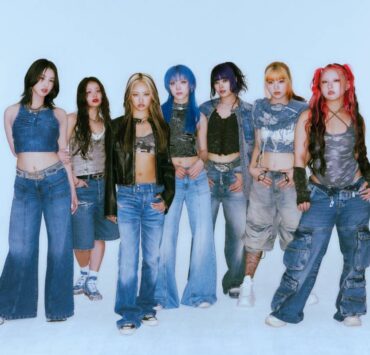London bakery weaves Southeast Asian influences into pastry
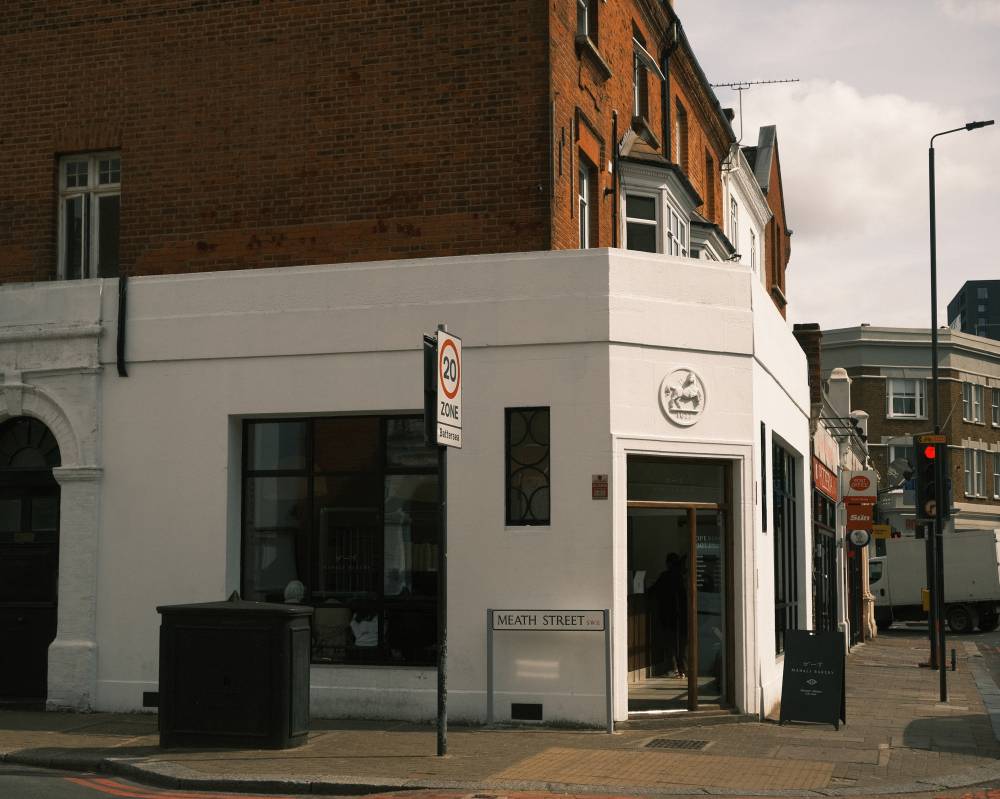
In Battersea, a riverside district just south of the Thames, Mahali Bakery offers a quiet pause amid the rush of traffic and shuffle of pedestrians. Step inside and the city recedes: sunlight spills across trays of freshly baked pastries, the aroma of butter and spice mingling with soft conversation. Behind the open counter, the rhythm of whisking and kneading fills the space with an easy warmth.
Mahali Bakery was founded by husband-and-wife duo Miguel Jocson and Ru-Yan Foong, classically-trained pastry chefs who set out to build something they could call their own. Though it took years to bring that vision into focus, they held on to a shared goal: to explore the breadth of Asian flavors through pastry. With Jocson’s Filipino roots and Foong’s Malaysian Chinese heritage, the pair drew on their backgrounds, allowing the flavors of home to fold naturally into their work.
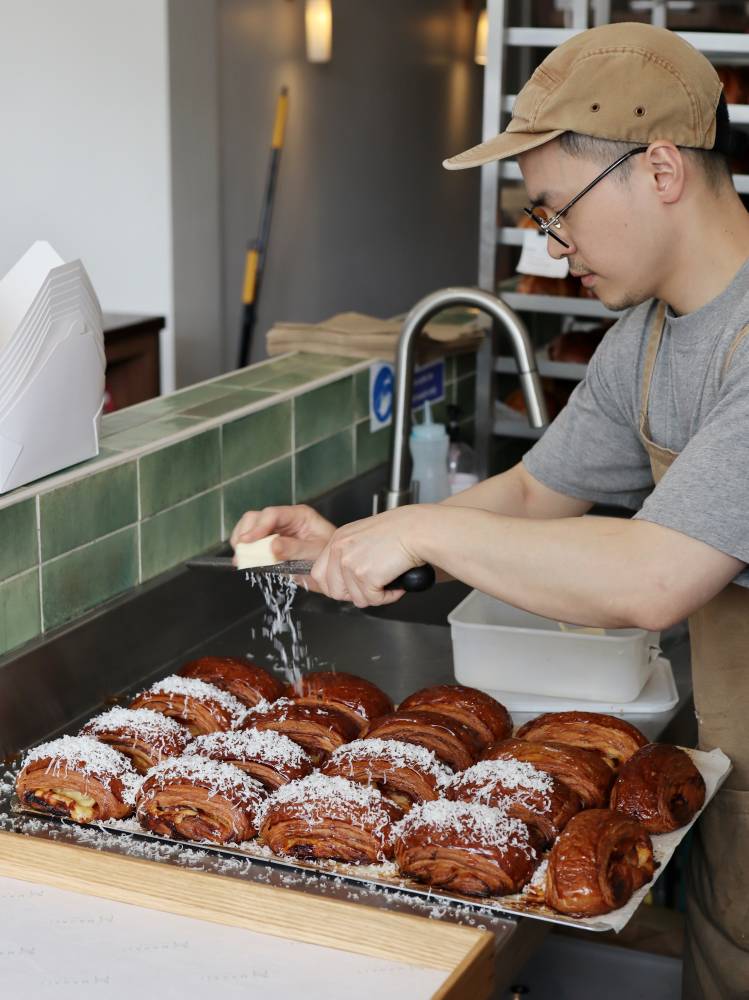
Both attended Le Cordon Bleu in Sydney—though not at the same time—before pursuing their respective careers. Foong refined her approach in some of Singapore’s more progressive kitchens before returning to Australia, while Jocson honed his skills in fine dining, eventually becoming head of pastry at the Langham Hotel.
The long road to Battersea
From the outset, their intention was to open a bakery. But like many independent ventures, their journey was anything but linear. Newly engaged and looking to start afresh, they packed up their lives in Sydney and moved to London. “I’ve always felt a strong connection to the city,” says Foong, whose ties to the capital date back to her university days. “People are always on the move,” she adds.
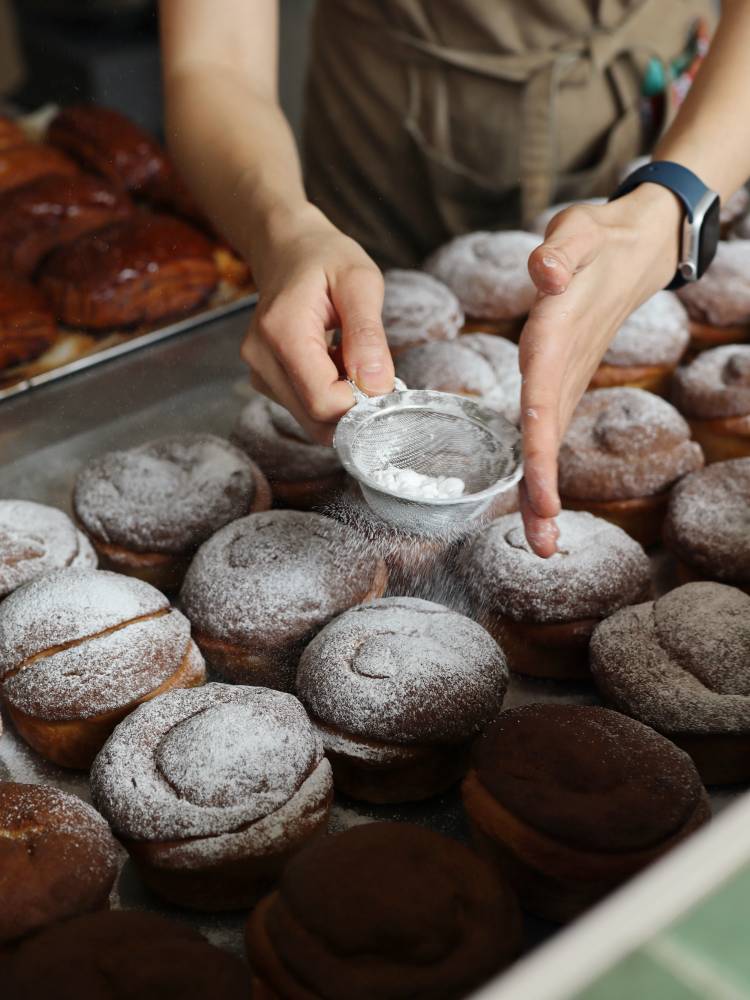
Even so, their excitement was tempered by challenges ahead. Brexit was in full swing, casting uncertainty over an already difficult time for immigrants in their position—and then came the pandemic.
With landlords turning down their proposals one after another, the pair set aside their plans for a bakery and considered an alternative way forward. To stave off restlessness, they took on orders from industry friends, turning out wholesale batches of carrot cakes and banana bread.
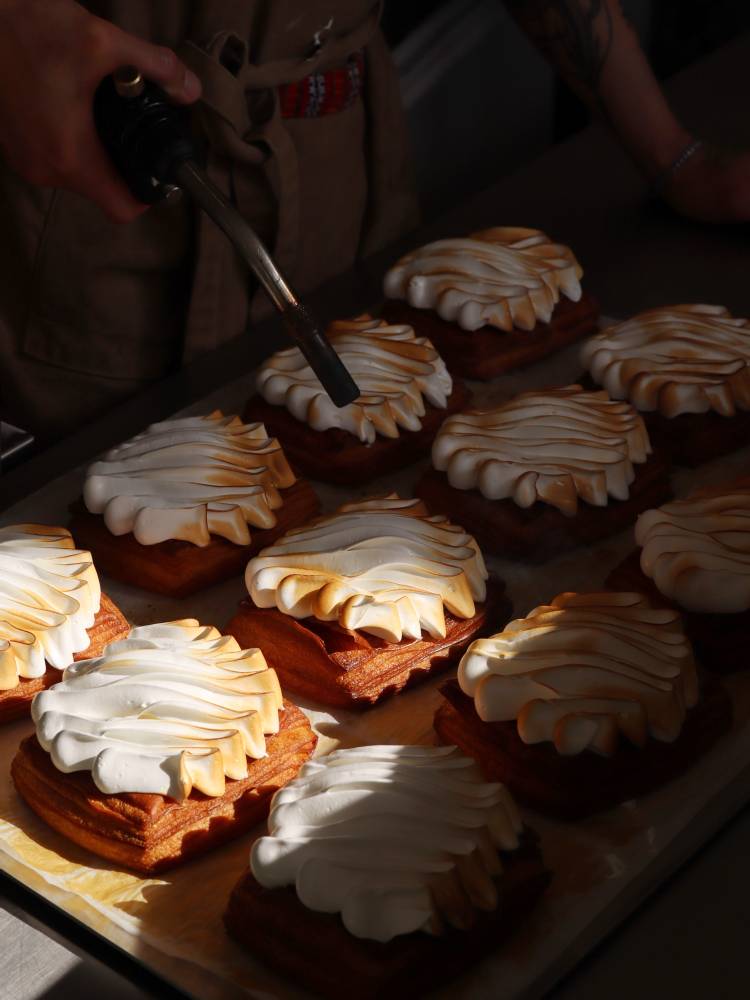
Soon, their flat in central London became unrecognizable, transformed into a makeshift commissary that smelled overwhelmingly of butter. “It demanded a different kind of hustle,” says Jocson, recalling how he and Foong shifted between roles to keep things running. A growing roster of clients eventually formed the foundation of a wholesale business that continues to thrive today.
In parallel, they pressed on with their search for a bakery space. “It felt as if we had been chasing this dream for the better part of three years,” she says.
So when the opportunity finally came around, they could scarcely believe it. In November 2024, they opened Mahali’s doors to the London public.
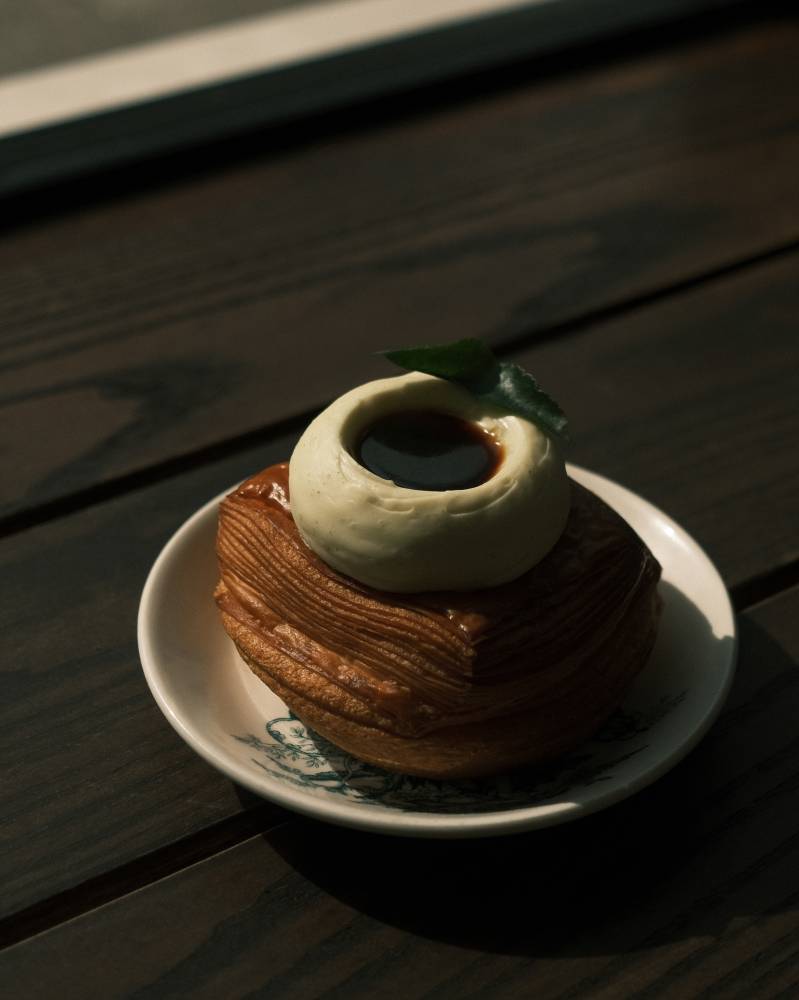
Love, in translation
The name Mahali has an unexpectedly tender origin: It’s derived from the Filipino term of endearment “mahal,” meaning “my love.” Jocson first put his own twist on the word as a joke, teasing Foong with it affectionately. Before long, the nickname stuck—friends and family began referring to them as “the Mahalis,” and even their suppliers followed suit.
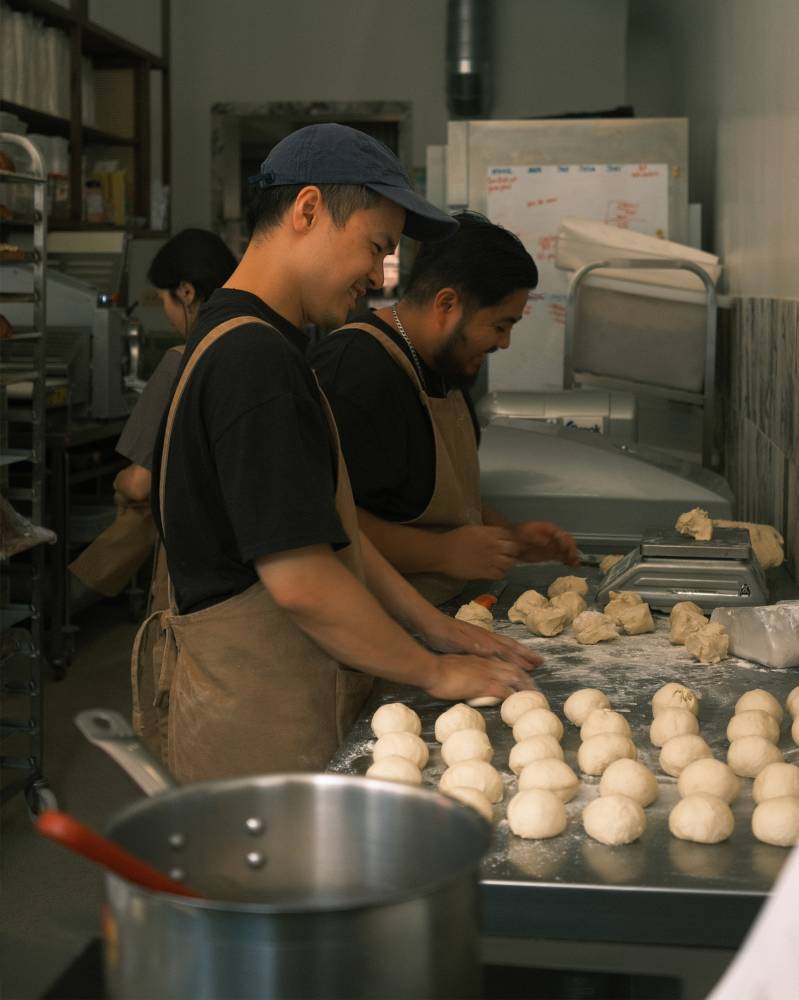
Between layers of nostalgia
Mahali’s menu spans both sweet and savory. On the sweet side, the Milo pastry, pandan almond croissant, and kaffir lime and pineapple are notable highlights. With their penchant for nostalgia, the Milo pastry reimagines the beloved drink as a layered indulgence.
Meanwhile, the pandan almond croissant draws on distinctly Southeast Asian influences. Double-baked with a filling of kaya cream and almond frangipane, the croissant delivers a bite that’s buttery and textured.
In celebration of Chinese New Year, the kaffir lime and pineapple pastry debuted as a riff on the classic pineapple tart. Initially intended as a seasonal special, it drew such a positive response that the team decided to make it a regular feature.
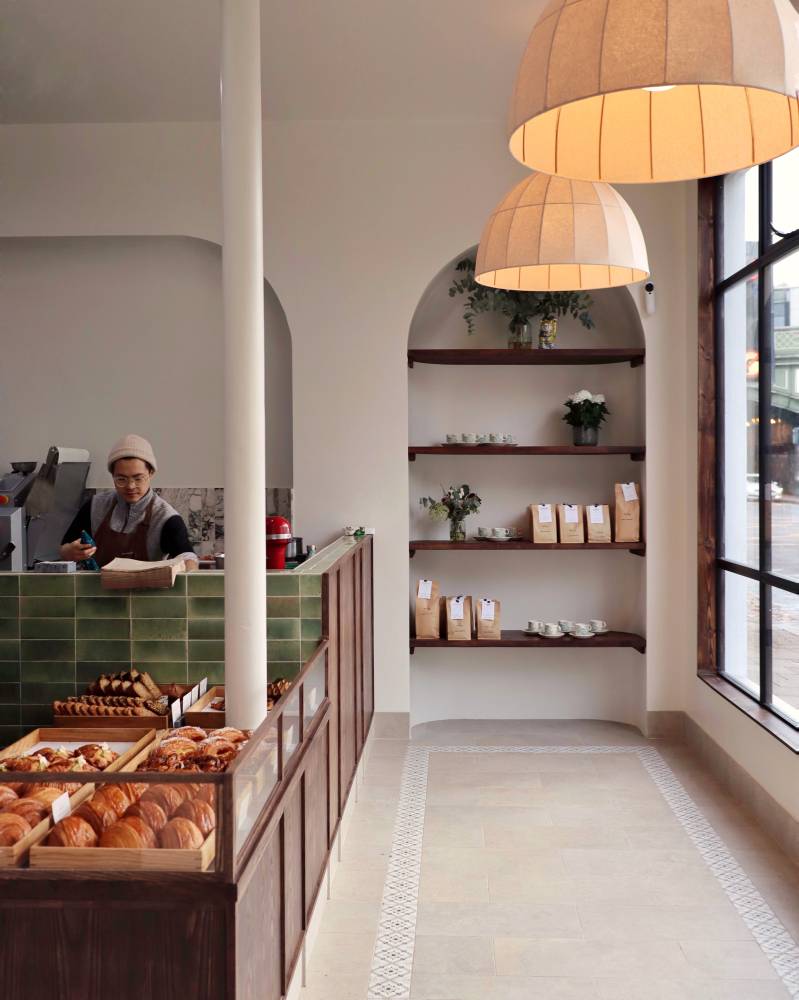
A sense of home, in bread and butter
Even with their strong grounding in the basics, Mahali quickly became known among locals for its hearty pastries. Chief among them is the sambal bacon—a reimagining of the quintessential ham-and-cheese, and their bestselling pastry to date. “It was through sambal that we could really make this combination our own,” says Jocson.
For Foong, the curry puff holds a deeply personal place. It’s an homage to her mother—the person she credits with nurturing her love for baking. “She’s been making us curry puffs since we were young, and I knew I wanted to recreate it with croissant dough,” she recalls.
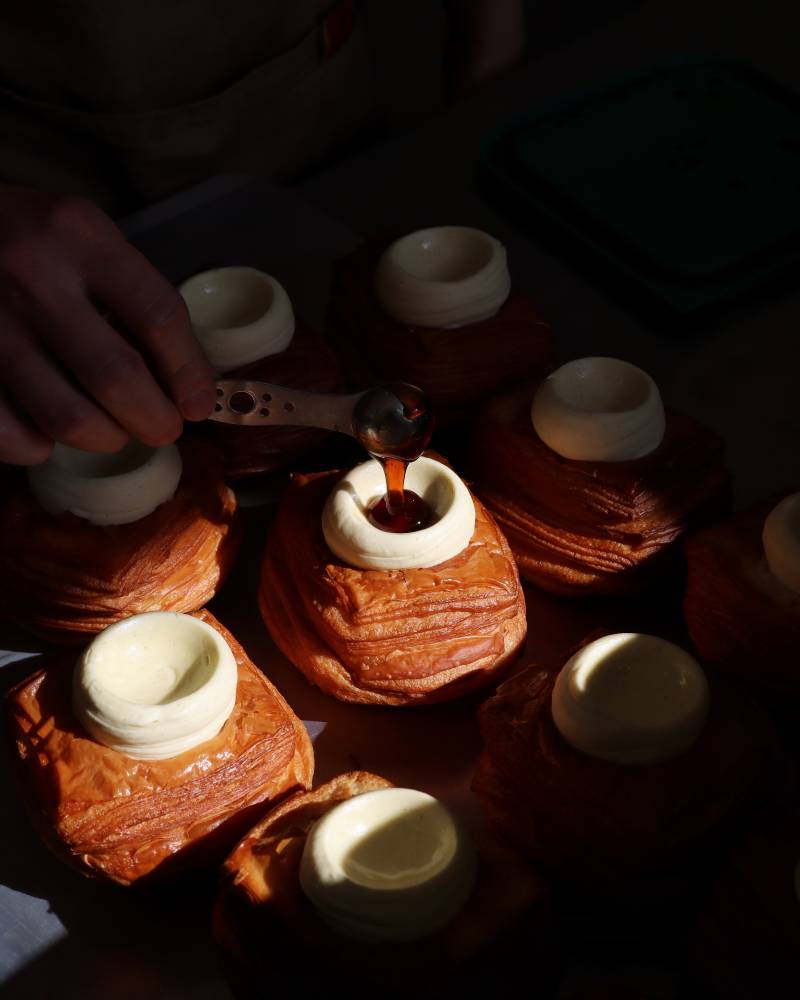
Beyond technique: pastry as identity
“At first, not everyone could visualize what we were trying to do,” says Foong. Despite concerns about being too niche, they stayed the course, convinced they had something genuine to offer.
Today, Mahali stands as an expression of that tireless dedication. At every step, their guiding principle remains disarmingly simple: trust your palate, and let the pastry speak for itself.















